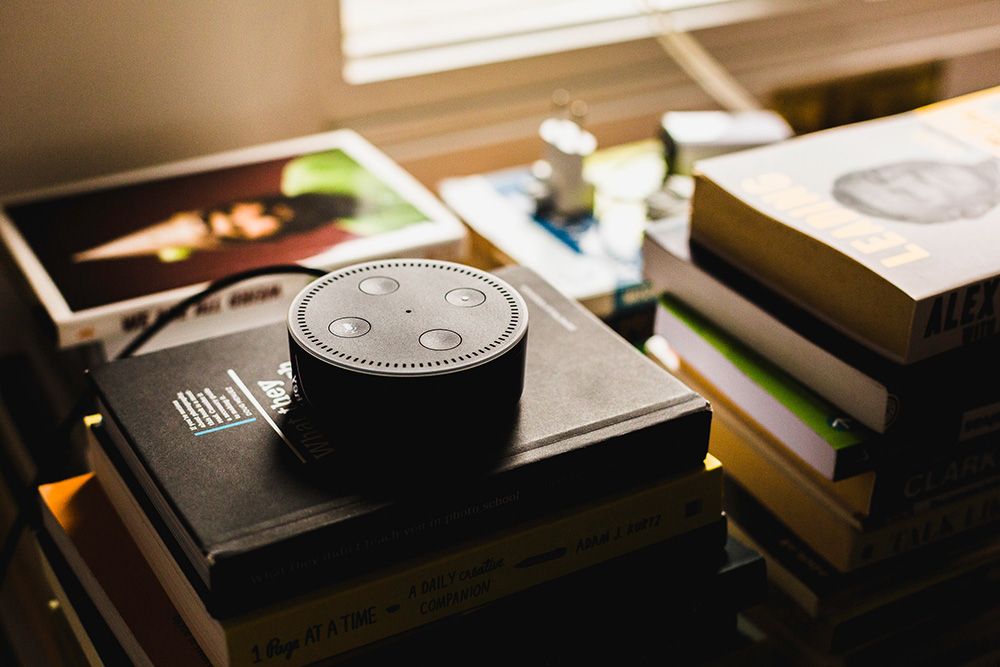Since 2013, Oliver Bendel has developed 22 chatbots and voice assistants together with his students or colleagues. They can be divided into three categories. The first are moral and immoral chatbots (i.e., forms of moral machines) and empathic voice assistants. The second are chatbots (some with voice output) for dead, endangered, or extinct languages and idioms. The third are pedagogical chatbots and chatbots that give recommendations and advice. Some of the projects lasted between four and six months. Most of the GPTs were created in just a few hours. Exceptions are Miss Tammy and Animal Whisperer, which took several months to build with the help of prompt engineering and retrieval-augmented generation (RAG). Articles and book chapters have been published on many of the projects. The names of the developers can be found in these. A few chatbots made it into the media, such as GOODBOT (for which the preparatory work began in 2012), LÜGENBOT aka LIEBOT, and @llegra.
The kAIxo Project
The interim presentation of the kAIxo project took place on 11 November 2024. Nicolas Lluis Araya is the project collaborator. Chatbots for dead, endangered, and extinct languages are being developed at the FHNW School of Business. One well-known example is @llegra, a chatbot for Vallader. Oliver Bendel recently tested the reach of GPTs for endangered languages such as Irish (Irish Gaelic), Maori, and Basque. According to ChatGPT, there is a relatively large amount of training material available for them. On 12 May 2024 – after Irish Girl and Maori Girl – a first version of Adelina, a chatbot for Basque, was created. It was later improved in a second version. As part of the “kAIxo” project (the Basque “kaixo” corresponds to the English “hello”), the chatbot or voice assistant kAIxo is being built to speak Basque. Its purpose is to keep users practising written or spoken language or to develop the desire to learn the endangered language. The chatbot is based on GPT-4o. Retrieval-Augmented Generation (RAG) plays a central role. A ChatSubs dataset is used, which contains dialogues in Spanish and three other official Spanish languages (Catalan, Basque, and Galician). Nicolas Lluis Araya presented a functioning prototype at the interim presentation. This is now to be expanded step by step.
A Conversational Agent as a Superhero
Researchers at the University of Washington have developed a web app to help children develop skills such as self-awareness and emotional management. They have published their findings in their paper “Self-Talk with Superhero Zip: Supporting Children’s Socioemotional Learning with Conversational Agents”. From the abstract: “Here, we examine whether children can learn to use a socioemotional strategy known as ‘self-talk’ from a conversational agent (CA). To investigate this question, we designed and built ‘Self-Talk with Superhero Zip,’ an interactive CA experience, and deployed it for one week in ten family homes to pairs of siblings between the ages of five and ten … We found that children could recall and accurately describe the lessons taught by the intervention, and we saw indications of children applying self-talk in daily life.” (Fu et al. 2023) The paper can be downloaded at dl.acm.org/doi/abs/10.1145/3585088.3589376 (Image: DALL-E 3).
Ethics of Conversational Agents
The Ethics of Conversational User Interfaces workshop at the ACM CHI 2022 conference “will consolidate ethics-related research of the past and set the agenda for future CUI research on ethics going forward”. “This builds on previous CUI workshops exploring theories and methods, grand challenges and future design perspectives, and collaborative interactions.” (CfP CUI) From the Call for Papers: “In what ways can we advance our research on conversational user interfaces (CUIs) by including considerations on ethics? As CUIs, like Amazon Alexa or chatbots, become commonplace, discussions on how they can be designed in an ethical manner or how they change our views on ethics of technology should be topics we engage with as a community.” (CfP CUI) Paper submission deadline is 24 February 2022. The workshop is scheduled to take place in New Orleans on 21 April 2022. More information is available via www.conversationaluserinterfaces.org/workshops/CHI2022/.
Paper on the SPACE THEA Project
The paper “The SPACE THEA Project” by Martin Spathelf and Oliver Bendel was accepted at the AAAI 2022 Spring Symposia (Stanford University). The two authors will present it at the end of March 2022 at the symposium “How Fair is Fair? Achieving Wellbeing AI”. From the abstract: “In some situations, no professional human contact can be available. Accordingly, one remains alone with one’s problems and fears. A manned Mars flight is certainly such a situation. A voice assistant that shows empathy and assists the astronauts could be a solution. In the SPACE THEA project, a prototype with such capabilities was developed using Google Assistant and Dialogflow Essentials. The voice assistant has a personality based on characteristics such as functional intelligence, sincerity, creativity, and emotional intelligence. It proves itself in seven different scenarios designed to represent the daily lives of astronauts, addressing operational crises and human problems. The paper describes the seven scenarios in detail, and lists technical and conceptual foundations of the voice assistant. Finally, the most important results are stated and the chapters are summarized.” More information about the AAAI 2022 Spring Symposia is available here.
Conversational Agent as Trustworthy Autonomous System
The Dagstuhl seminar “Conversational Agent as Trustworthy Autonomous System (Trust-CA)” will take place from September 19 – 24, 2021. According to the website, Schloss Dagstuhl – Leibniz-Zentrum für Informatik “pursues its mission of furthering world class research in computer science by facilitating communication and interaction between researchers”. Organizers of this event are Asbjørn Følstad (SINTEF – Oslo), Jonathan Grudin (Microsoft – Redmond), Effie Lai-Chong Law (University of Leicester) and Björn Schuller (University of Augsburg). They outline the background as follows: “CA, like many other AI/ML-infused autonomous systems, need to gain the trust of their users in order to be deployed effectively. Nevertheless, in the first place, we need to ensure that such systems are trustworthy. Persuading users to trust a non-trustworthy CA is grossly unethical. Conversely, failing to convince users to trust a trustworthy CA that is beneficial to their wellbeing can be detrimental, given that a lack of trust leads to low adoption or total rejection of a system. A deep understanding of how trust is initially built and evolved in human-human interaction (HHI) can shed light on the trust journey in human-automation interaction (HAI). This calls forth a multidisciplinary analytical framework, which is lacking but much needed for informing the design of trustworthy autonomous systems like CA.” (Website Dagstuhl) Regarding the goal of the workshop, the organizers write: “The overall goal of this Dagstuhl Seminar is to bring together researchers and practitioners, who are currently engaged in diverse communities related to Conversational Agent (CA) to explore the three main challenges on maximising the trustworthiness of and trust in CA as AI/ML-driven autonomous systems – an issue deemed increasingly significant given the widespread uses of CA in every sector of life – and to chart a roadmap for the future research on CA.” (Website Dagstuhl) Oliver Bendel (School of Business FHNW) will talk about his chatbot and voice assistant projects. These emerge since 2013 from machine ethics and social robotics. Further information is available here (photo: Schloss Dagstuhl).
Meet SPACE THEA
SPACE THEA was developd by Martin Spathelf at the School of Business FHNW from April to August 2021. The client and supervisor was Prof. Dr. Oliver Bendel. The voice assistant is supposed to show empathy and emotions towards astronauts on a Mars flight. Technically, it is based on Google Assistant and Dialogflow. The programmer chose a female voice with Canadian English. SPACE THEA’s personality includes functional and emotional intelligence, honesty, and creativity. She follows a moral principle: to maximize the benefit of the passengers of the spacecraft. The prototype was implemented for the following scenarios: conduct general conversations; help the user find a light switch; assist the astronaut when a thruster fails; greet and cheer up in the morning; fend off an insult for no reason; stand by a lonely astronaut; learn about the voice assistant. A video on the latter scenario is available here. Oliver Bendel has been researching conversational agents for 20 years. With his teams, he has developed 20 concepts and artifacts of machine ethics and social robotics since 2012.
Dialects and Accents as a Challenge for Voice Assistants
Voice assistants often have difficulties with dialects. This was already evident in the case of Siri in 2012. In German-speaking Switzerland, she did not always understand users. There is a similar problem in the UK. Alexa and other voice assistants have trouble understanding the accents there. According to the Guardian, the BBC is preparing to launch a rival to Amazon’s Alexa called Beeb (a nickname for the public service broadcaster, just like “Auntie”). “The voice assistant, which has been created by an in-house BBC team, will be launched next year, with a focus on enabling people to find their favourite programmes and interact with online services. While some US-developed products have struggled to understand strong regional accents, the BBC will … ask staff in offices around the UK to record their voices and make sure the software understands them.” (Guardian, 27 August 2019) Auntie has no plans to develop or offer a physical product such as Amazon’s Echo speaker or a Google Home device. Instead, the Beeb software will be built into the BBC online services. It remains to be seen whether this will solve all problems of comprehension.







